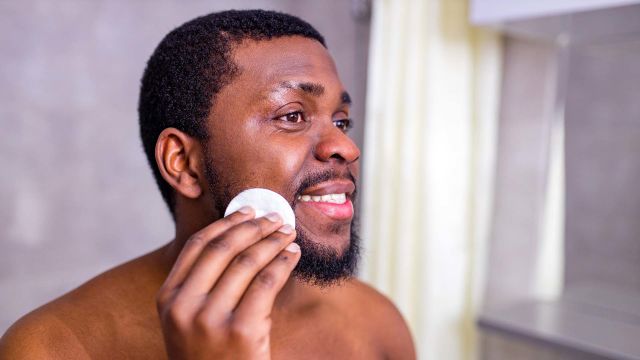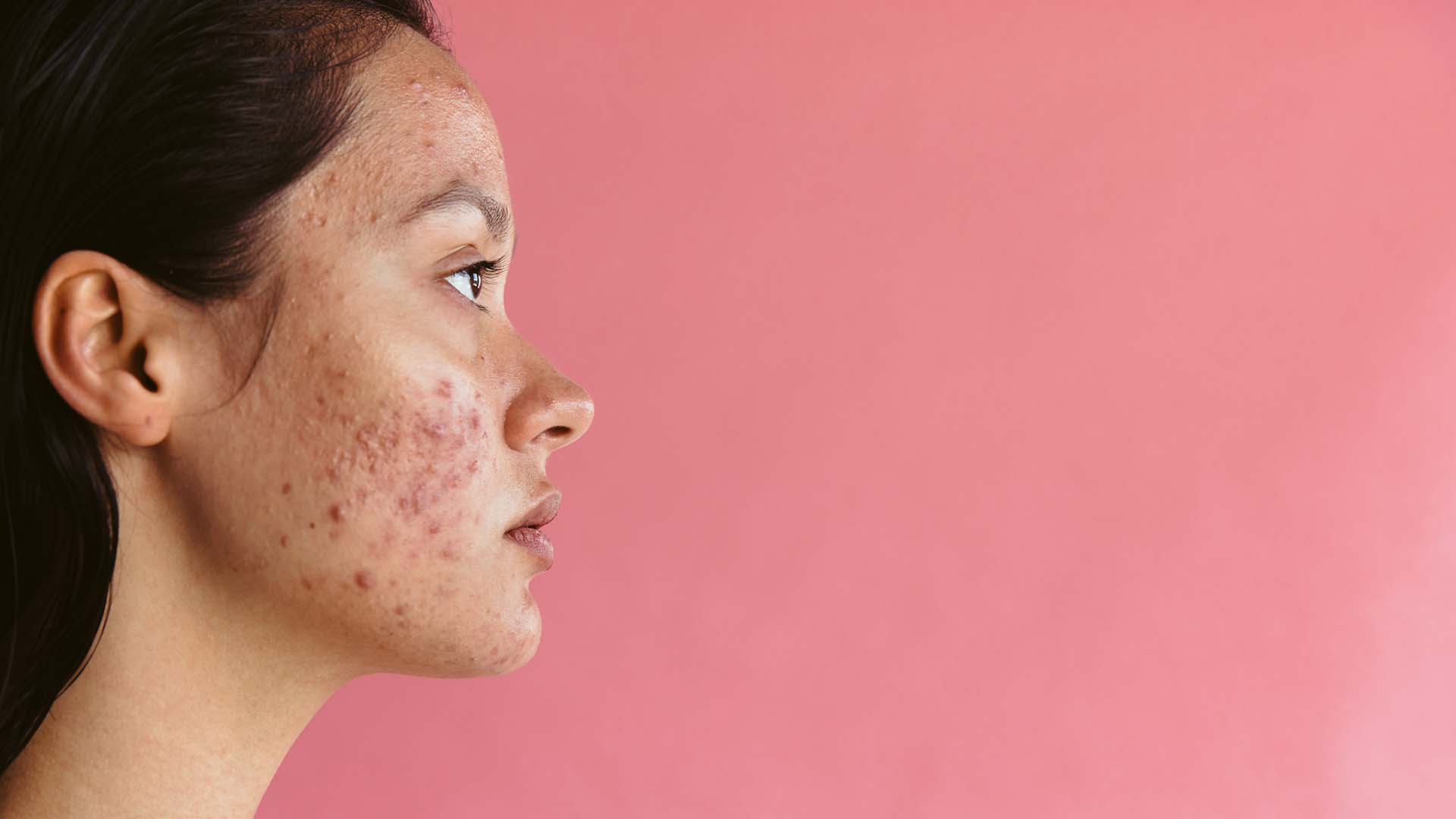Acne is the most common skin condition among Americans, and it affects people with many different skin tones. This includes many people with darker skin, who often find that treating acne comes with additional considerations, and sometimes, additional challenges.
Here, we look at several of those considerations and challenges, along with some basic strategies for one of the most crucial steps in treating any skin condition—finding the dermatologist that is right for you.
How does acne impact darker skin?
Acne causes pimples, which can lead to skin discoloration and scarring—and in people who have darker skin, acne has a greater risk of causing skin discoloration and scarring.
First, a look at how pimples form: Pimples occur when hair follicles become clogged with dead skin cells, debris, and sebum (a waxy, oily substance released by glands in the skin). Bacteria (called Cutibacterium acnes) grow and become trapped inside these clogged follicles, causing them to become inflamed and sometimes fill with pus.
Pimples can vary from whiteheads and blackheads on the surface of the skin, to bump-like papules, to hard nodules and cysts in the deeper layers of the skin. In addition to the face, pimples can form on the neck, upper back, upper arms, and chest (all locations where sebum-producing glands are located).
Like any skin condition, acne can impact a person’s mental health, harming a person’s self-esteem and confidence, causing them to feel embarrassed and self-conscious about their appearance.
Postinflammatory hyperpigmentation (PIH)
As pimples heal and clear up, they can leave behind dark, discolored spots on the skin. This is called postinflammatory hyperpigmentation (PIH).
The dark spots that occur with PIH are deposits of a pigment called melanin. Melanin is what gives skin, hair, and eyes their color. Levels of melanin are higher in darker skin, darker hair, and darker eyes.
Injuries and inflammation in the skin—in this case, pimples—increase melanin production. The more melanin the skin produces, the greater a person’s risk of PIH, which is why people with darker skin who have acne are more likely to experience PIH.
PIH can last for years. In many cases, it can cause more mental and emotional distress than acne.
Keloid scarring
In people with darker skin, acne is also more likely to cause a type of scarring called keloid scarring. Keloid scars—or keloids—are thick, raised scars that form after an injury to the skin. As the injury heals, extra scar tissue grows. In some cases, keloid scars are larger than the initial injury.
While anyone can develop keloid scars, having darker skin is a known risk factor—though the reasons why are not known. Genetics seem to play a significant role, and it’s common for a person with a keloid scar to have a blood relative who also has a keloid scar.
Is acne treatment different depending on skin tone?
While treatment for acne is similar across all skin tones, there may be additional considerations when treating acne in darker skin—such as starting treatment with a combination of topical therapies to reduce both acne and PIH.
Because acne treatment is a bit different for everyone, finding the right dermatologist is a crucial step in treating acne. Here are a few strategies that may help:
- If you have friends or loved ones who have worked with a dermatologist (especially friends and loved ones who have skin tones similar to your own), ask what their experience was like and if they have a recommendation.
- Ask another healthcare provider (such as a primary care provider) if they can recommend someone. You can also check with your insurance provider for dermatologists in your area.
- There are also online directories like HUED and Black Dermatologist Directory, which can help you find culturally sensitive healthcare providers.
- Check reviews of local dermatologists in your area, see if any of the reviews mention having darker skin and what their experience was like.
- When you find a potential dermatologist, ask if they have experience treating acne in people with darker skin.
If you have acne, do not wait to start treating. The earlier you can start treating acne, the better. Early treatment can help prevent acne from getting worse, and it can also help prevent PIH and scarring.






